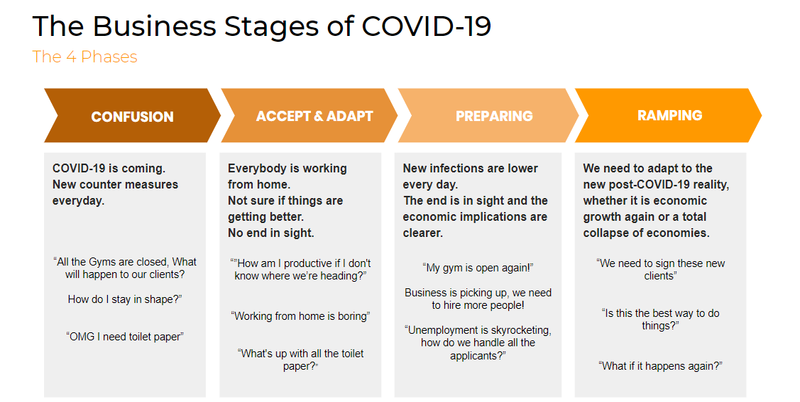If you are in Germany and looking for a reasonably priced gym, chances are you know John Reed fitness. The gyms, located all across Europe, provide their customers with a hip workout space and even John Reed Fitness radio station. Earlier this week an email was sent to all German customers announcing a temporary closure due to the latest Covid-19 orders. As consolation, the gym is now providing CYBEROBICS Premium accounts to all their members which includes 100 live classes per week, 100 on-demand workouts and many options for training from SmartTVs PCs, Laptops and smartphones.

During the first lockdown the health and fitness sector was hit hard by the Covid-19. It can also be noted that the fitness sector was one of the quickest industries to pivot to the restrictions. One such brand was Peloton which we discussed in a previous article here.
John Reed is not the only gym to swap their studio experience for online workouts. Joey Gonzalez, the CEO of Barry’s, was quick to launch free Instagram workouts during the first lockdown to keep their community engaged. They even managed to launch a digital platform via Zoom that was built in just 14 days. Months later Barry’s is investing heavily to create a digital platform which will be a permanent part of their business model moving forward. These changes are not with compromise. Fast Company reported that in March of 2020 Barry’s had a workforce of over 1,400 employees and today that number is between 400 and 500.

A recent report from the United States shows that 60% of Americans do not intend to renew their gym memberships when the restrictions are lifted.
What is the New “Normal” for Fitness?
The majority of experts do not expect the fitness industry to return to “normal” after corona. In all reality it is likely that these pushes into the digital sphere are here to stay particularly with the expansion and versatility of fitness apps. Reports and Data, a research firm, recently predicted that the fitness app market will grow to 14.64 billion by 2027 with upwards of 100.2 mln of fitness app users by 2024.

This is due to not only the reduction in price but also the reduction in convenience costs. The typical online fitness class costs about 11 EUR which is about half the price of an in studio session. But unlike an in person fitness class where the customer may have to drive to a location, pack a workout outfit in the morning or other small hassels someone can simply begin a class whenever they have the time. The Vice President of Research and Product marketing at Mindbody told Forbes that an astounding 46% of participants included in their survey will keep virtual classes in their fitness routines whether studios reopen or not. The new business model is even capturing the “digital-first” market with 40% of consumers now booking workouts from brick and mortar locations they have never even visited before.
What comes next?
One of the main benefits from in person training is the adjustments a fitness instructor can make to a person’s form. This enables people to get the most out of their workouts, but maybe most importantly the instructors adjustments prevent possible injuries. One exciting technology that is entering the market works similar to facial recognition but instead of the entire body. Human pose estimation uses a highly sensitive computer based vision technology that applies key points models of the skeletal system and body volume to properly analyze the body to ensure correct posture.

Another on trend technology that is being further developed specifically for fitness apps is artificial intelligence. For example Freeletics is an AI-driven fitness app that creates different and specific programs for all its users from over 3.5million options. Forbes reported that the app is used by 47 million people in 160 countries.
Marketing Tips from Paranoid
As the health and fitness sector shifts from IRL to online it is important to strategize which parts of service offerings can be moved on part or totally online with the help of apps, steaming or webpages. Paranoid internet has offered digital transformation services since the start of our agency in 2015 and continues to do so in the German market and beyond.
In the future being competitive in this market will require a webpage with killer UX/UI or even an app. Get in contact with Paranoid Internet to find out how we could take your health and fitness business into the digital future.

